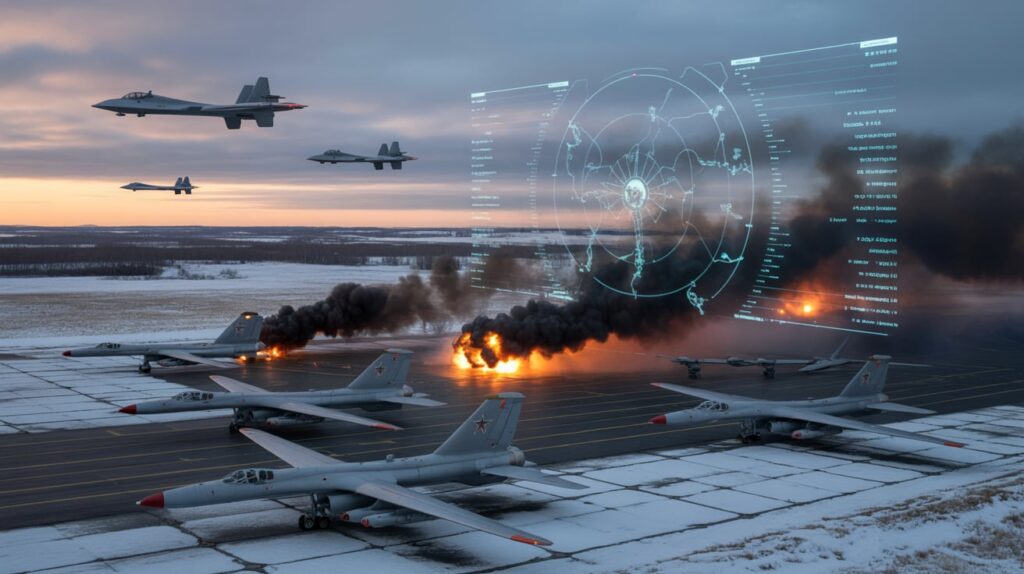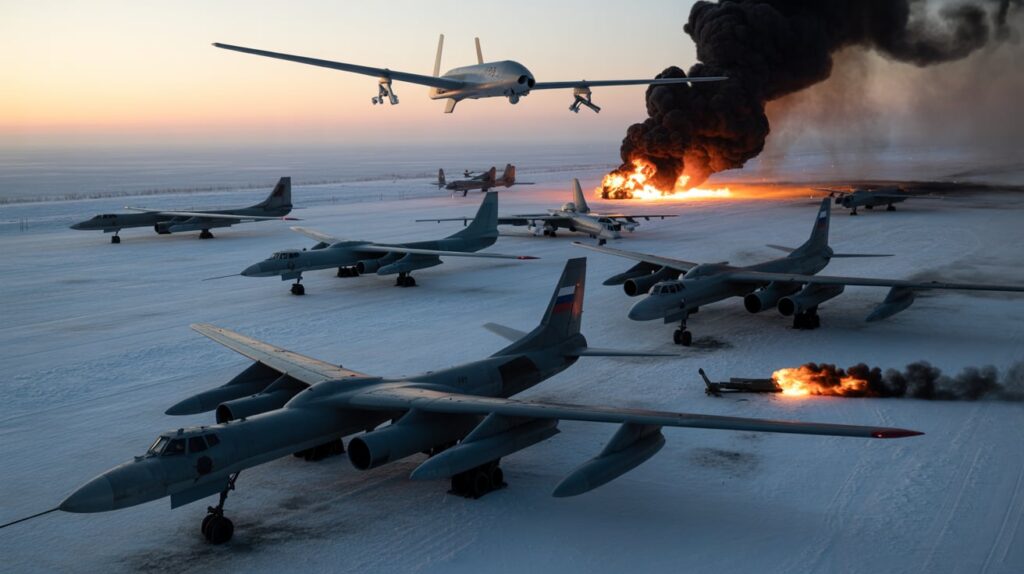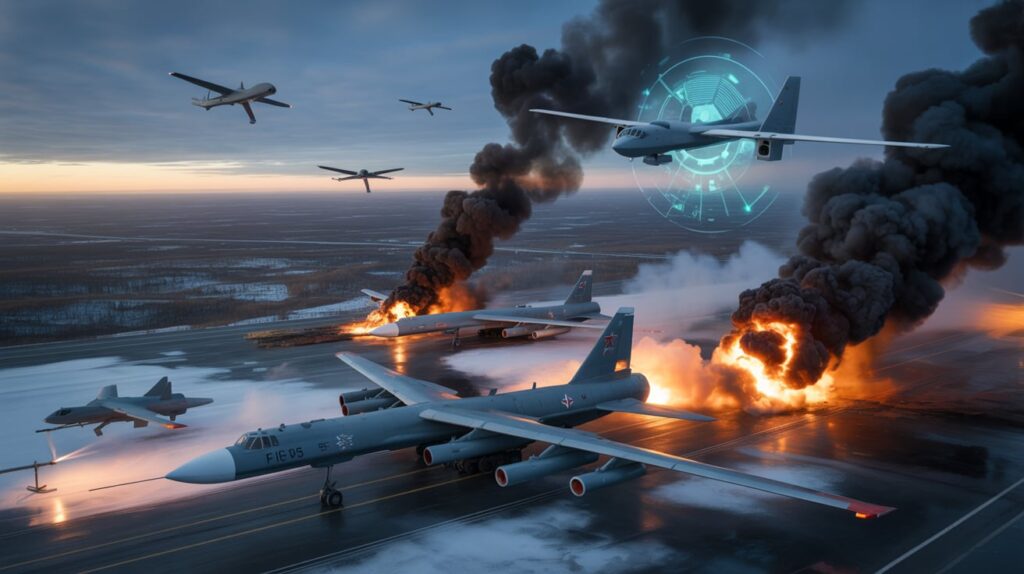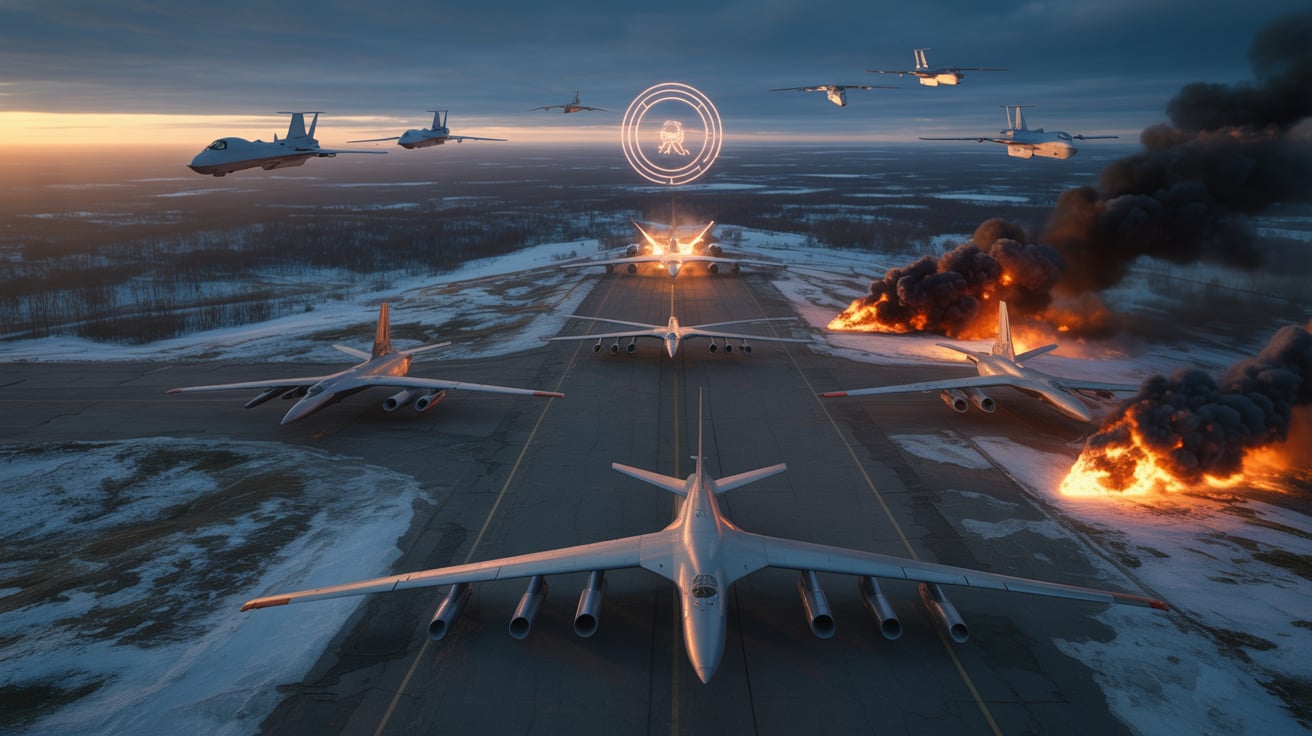Berlin — A recent Ukrainian drone assault likely inflicted serious damage on roughly 10% of Russia’s strategic bomber fleet, hitting key aircraft as they were being readied for missions against Ukraine, according to a senior German military official.
Speaking in a YouTube podcast set to be published on Saturday, Major General Christian Freuding, who oversees Germany’s military aid to Ukraine, said the drone attacks damaged more than a dozen high-value Russian aircraft, including TU-95 and TU-22 long-range bombers, as well as A-50 surveillance planes. Reuters reviewed the podcast ahead of its release.

“These included aircraft that were actually being prepared for strikes against Ukraine,” Freuding explained. “We assess that these aircraft—particularly the A-50s—are now beyond use, even for spare parts. This is significant because only a small number of such planes exist.”
The A-50, often described as Russia’s version of NATO’s AWACS, provides vital airborne situational awareness for Russian forces. Freuding emphasized that their loss would be a serious setback for Moscow’s air operations.
The general confirmed that the attack damaged a considerable portion of Russia’s long-range bomber fleet. “According to our estimates, around 10% of it has been taken out of commission,” he said.

This assessment aligns with U.S. intelligence, which reportedly found that as many as 20 Russian aircraft were hit, with at least 10 of them believed to be destroyed. American officials speaking to Reuters emphasized that it could take Russia years to replace the damaged aircraft due to the complexity and cost of production.
While Freuding cautioned that the strike isn’t likely to immediately curtail Russian aerial assaults on Ukraine—given that 90% of the bomber fleet remains intact—he pointed to significant indirect consequences.
“There’s a psychological dimension that can’t be underestimated,” he said. “And with fewer aircraft available, the remaining bombers will be required to fly more missions, which could accelerate their wear and tear.”
One reason the attack was so effective, Freuding suggested, was a false sense of security. “Russia has long felt shielded by its vast geography,” he noted. “That’s why many of these planes were stationed with minimal protection. That assumption has now been shattered.”
Following the attack, Russia is expected to significantly bolster security at its military airfields.
According to Freuding, Ukraine used AI-guided drones to carry out coordinated strikes on four different airbases: two within 100 kilometers (62 miles) of Moscow, the Olenya base in the Murmansk region, and Belaya airfield in Siberia. A fifth attempt to strike Ukrainka air base, near Russia’s border with China, failed.
The planes targeted include components of Russia’s nuclear triad—its three-pronged system of deploying nuclear weapons via land, sea, and air. Freuding said the impact of such strikes on nuclear readiness was not to be taken lightly.

The drone attacks represent one of the most daring Ukrainian operations deep into Russian territory to date, highlighting Kyiv’s growing capabilities—and Russia’s vulnerabilities.
Conclusion:
The Ukrainian drone strike marks a significant escalation in Kyiv’s ability to hit high-value military targets deep within Russian territory. Damaging up to 10% of Russia’s strategic bomber fleet, including rare surveillance aircraft, this operation not only inflicts a logistical and operational setback for Moscow but also delivers a powerful psychological blow. With Russia now forced to rethink the security of its air bases and stretch its remaining fleet thinner, Ukraine has demonstrated that the war is no longer confined to its borders. As Germany and the U.S. confirm the scale of the impact, this attack underscores the evolving nature of modern warfare—where AI-driven precision and strategic daring can reshape the battlefield far beyond front lines.




2 thoughts on “German Officials: Ukrainian Strike Damaged 10% of Russia’s Strategic Bomber Fleet”